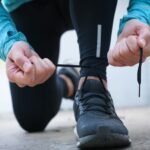
Running During Chemotherapy: A Complete Guide
Page Contents
Chemotherapy is a common treatment for cancer that can have a profound impact on a person’s physical and emotional well-being. For many cancer patients, maintaining an active lifestyle is a crucial aspect of their overall health and recovery. However, when it comes to running during chemotherapy, there are valid concerns and questions that need to be addressed. In this guide, we will explore the effects of chemotherapy on the body, whether running is possible during treatment, and what recent studies have revealed about exercise and chemotherapy.
Effects of Chemo on the Body
Chemotherapy drugs work by targeting and destroying rapidly dividing cells, including cancer cells. Unfortunately, they also affect healthy cells, leading to a range of side effects that vary from person to person. Common side effects of chemotherapy include fatigue, nausea, muscle weakness, and a compromised immune system. These physical challenges can make it difficult to engage in physical activities like running.
Fatigue is a particularly significant issue for individuals undergoing chemotherapy. The treatment can leave you feeling drained and lacking energy. It is important to listen to your body during this time and give yourself permission to rest when needed. Pushing yourself too hard can potentially worsen fatigue and delay the recovery process.
Can You Run While on Chemotherapy?
The question of whether you can run while undergoing chemotherapy is highly individual and depends on various factors, including the type and stage of cancer, treatment protocol, and overall physical condition. It is crucial to consult with your oncologist before starting or continuing any exercise routine during chemotherapy. They will be able to provide personalized advice based on your specific circumstances.
In some cases, running during chemotherapy may be possible, albeit with modifications. It is essential to start slowly and gradually increase the intensity and duration of your runs. Pay close attention to your body’s signals and adjust accordingly. Additionally, it may be necessary to make alterations to your running routine, such as opting for shorter distances, incorporating walking intervals, or switching to low-impact exercises like swimming or cycling.
Studies on Exercise and Chemo
Over the years, numerous studies have explored the effects of exercise during chemotherapy. While more research is needed, the existing evidence suggests that exercise can offer several benefits to cancer patients. A study published in the Journal of Clinical Oncology found that exercise during chemotherapy improved physical function, reduced fatigue, and enhanced quality of life in breast cancer patients.
Another study conducted at the University of Alberta demonstrated that exercise during chemotherapy had positive effects on patients’ cardiovascular fitness and muscle strength. Additionally, it found that exercise did not interfere with the effectiveness of chemotherapy treatments, indicating that it is safe to engage in physical activity during treatment.
However, it is crucial to remember that each individual’s response to exercise during chemotherapy may vary. What works for one person may not work for another, and it is essential to work closely with your healthcare team to determine the most suitable exercise regimen for you.
Additional Considerations
In addition to the effects of chemotherapy and the guidance from your healthcare team, there are a few more factors to consider when contemplating running during chemotherapy.
Firstly, it is essential to pay attention to your nutrition. Chemotherapy can impact your appetite and taste preferences, making it challenging to maintain a balanced diet. However, proper nutrition is crucial for supporting your body during treatment and exercise. Consult with a registered dietitian or nutritionist who specializes in oncology to develop a meal plan that meets your specific needs.
Secondly, staying hydrated is of utmost importance. Chemotherapy can cause dehydration, and running while dehydrated can lead to further complications. Make sure to drink plenty of fluids before, during, and after your runs. If you’re experiencing nausea or vomiting, it’s essential to discuss these symptoms with your healthcare team, as they can affect hydration levels and running performance.
Lastly, take note of your emotional well-being. Going through chemotherapy can be emotionally challenging, and exercise, including running, can serve as a powerful outlet for managing stress and anxiety. However, it’s essential to listen to your emotions and be gentle with yourself. If running feels overwhelming on certain days, consider incorporating other activities that promote relaxation and stress relief, such as yoga or meditation.
Finding Support
Embarking on a running journey during chemotherapy can be more manageable with the support of others who are going through or have gone through a similar experience. Consider joining support groups or online communities specifically tailored to cancer patients and survivors who engage in physical activities. Sharing experiences, tips, and encouragement with others who understand can provide a sense of camaraderie and motivation.
Additionally, involving your loved ones in your running journey can be beneficial. Inform them about your goals and limitations, and let them be part of your support system. Having a running buddy or someone who can accompany you on walks can make the experience more enjoyable and help you stay accountable.
Best Training Plan To Follow While On Chemo
While there isn’t a one-size-fits-all training plan for individuals undergoing chemotherapy, there are some general guidelines and considerations to keep in mind when creating a training plan during this time. It’s important to note that these suggestions are general and should be discussed with your healthcare team to ensure they are appropriate for your specific situation. Here are some tips to help you develop a training plan while on chemotherapy:
1. Consult with your healthcare team or running coach: Before starting any training plan, consult with your oncologist or healthcare team to discuss your desire to exercise during chemotherapy. They will have a better understanding of your overall health, treatment plan, and any potential limitations or precautions to consider.
2. Start slowly and gradually increase intensity: Begin your training plan with low-intensity exercises and gradually increase the intensity and duration over time. This approach allows your body to adjust and adapt to the physical demands of exercise while taking into account the potential fatigue and weakness associated with chemotherapy.
3. Incorporate a mix of cardiovascular and strength training exercises: Your training plan should ideally include a combination of cardiovascular exercises, such as walking, jogging, or cycling, and strength training exercises, such as bodyweight exercises or light resistance training. This combination can help improve your cardiovascular fitness, muscle strength, and overall well-being.
4. Listen to your body: Pay close attention to your body’s signals during and after exercise. If you experience excessive fatigue, dizziness, shortness of breath, or any unusual symptoms, it’s essential to slow down or stop exercising and consult with your healthcare team. It’s crucial to strike a balance between pushing yourself and not overexerting your body during this challenging time.
5. Prioritize rest and recovery: Rest and recovery are just as important as exercise itself, especially during chemotherapy. Allow yourself ample time to rest and recover between exercise sessions. This may involve scheduling rest days or incorporating active recovery activities, such as gentle stretching or yoga, into your routine.
6. Stay hydrated and maintain proper nutrition: Chemotherapy can impact hydration levels and appetite, so it’s essential to stay hydrated and maintain proper nutrition to support your body during exercise and recovery. Drink plenty of fluids and consult with a registered dietitian or nutritionist who specializes in oncology to develop a well-rounded meal plan that meets your specific needs.
7. Seek professional guidance if needed: If you’re unsure about designing a training plan or need additional support, consider seeking guidance from a certified personal trainer or exercise specialist who has experience working with individuals undergoing chemotherapy. They can help tailor a plan to your needs and ensure that you’re exercising safely and effectively.
Remember, the primary goal of your training plan while on chemotherapy is to support your overall health and well-being. It’s essential to listen to your body, adapt your plan as needed, and be flexible with your expectations. By staying in communication with your healthcare and coaching team and making adjustments as necessary, you can create a training plan that supports your physical and emotional well-being throughout your treatment journey.
Final Words
Running during chemotherapy can be a challenging endeavor, but it is not entirely off the table. It is essential to have open and honest communication with your oncologist, who can guide you based on your specific situation. Listening to your body and making adjustments to your running routine as necessary is vital to ensure your well-being.
While studies suggest that exercise can offer significant benefits during chemotherapy, it is crucial to proceed with caution and not push yourself beyond your limits. Be kind to yourself and give yourself permission to rest when needed. Remember that the goal is to support your overall health and well-being during treatment.
Ultimately, whether or not you can run during chemotherapy depends on various factors and should be determined in collaboration with your healthcare team. By staying informed, seeking guidance, and making adjustments as necessary, you can find a balance that works for you and supports your journey toward recovery.




